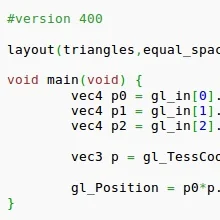Vulkan Video Decoding Coming In H1'2020, Ray-Tracing Progressing

In addition to making Vulkan better for machine learning, ray-tracing and video decode are two other topics of interest to us.
Vulkan Video is on track for debuting in H1'2020 for exposing video encode and decode under the Vulkan API. Initially they will be supporting the H.264 and HEVC video codecs and only later will there be VP9 and AV1 support. Belated VP9 and AV1 support is a shame but hopefully won't be too late to the party. Vulkan video encode/decode will certainly be interesting to watch and could help in the cross-OS multimedia player space if there is enough adoption compared to the plethora of different APIs between different hardware, drivers, and operating systems.
There is also the Vulkan Ray-Tracing work that is ongoing across vendors. The Vulkan Ray-Tracing work is being based on the existing VK_NV_ray_tracing extension from NVIDIA but with various additions and other changes to make it more applicable for the different software and hardware vendors. Both real-time ray-tracing and hybrid ray-tracing should be possible with this upcoming support.
Helping out for adoption is Vulkan Ray-Tracing is looking at "substantial compatibility" with Microsoft DirectX Ray-Tracing (DXR) while keeping to Vulkan's design. Vulkan Ray-Tracing will debut when two different conformant implementations have been written.
More details via the Khronos slides.
12 Comments

